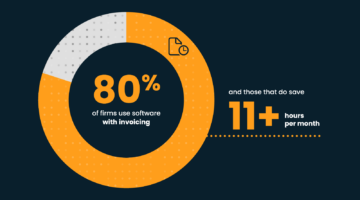Law firm advertising is expensive and certain methods may be cost-prohibitive for small firms. For instance, a small firm may not be able to afford a television or print campaign. Enter online marketing including, among other things, Google AdWords and sponsored links. In 2009, a law firm filed a lawsuit in Wisconsin state court challenging certain marketing strategies as an invasion of privacy, as defined in the Wisconsin privacy statute. Luckily for consumers and small firms, the court disagreed.
The case involved the two most prominent personal injury firms in Wisconsin. One of them, Cannon & Dunphy, used a Google AdWords PPC (price-per-click) strategy (and other search engines) to bid on the name of the state’s largest personal injury firm, Habush, Habush & Rottier. In other words, when a user would search the terms Habush or Rottier, a Cannon & Dunphy link would show up in the shaded section as a Sponsored Link.
Habush sued Cannon, alleging that Cannon’s online marketing campaign violated Wis. Stat. §995.50. That statute prohibits “the use, for advertising purposes or for purposes of trade, of the name . . . of any living person, without having first obtained the written consent of the person,” and provides a cause of action where such an invasion of privacy was unreasonable.

Why Some Firms Are Leading The Market With Generative AI
A culture of innovation with strategic AI like Lexis+ AI is revolutionizing law firms by boosting efficiency and deepening client relationships.
The result of the litigation, after the jump….
The court’s decision turned on the issue of the reasonableness of Cannon’s ad campaign. The court considered several factors in its analysis, including consumer confusion, standard and historic methods of competition, secondary meaning of Habush and Rottier, and ethical considerations. Weighing these factors, the court held that Cannon’s tactics were not unreasonable and granted summary judgment in their favor. (To read the full opinion, click here.)
Legal marketer Ross Fishman, CEO of Fishman Marketing Inc. and blogger, testified as an expert for the defendants. He described the case as a “must-win case for consumers” because of the “potential chilling effect upon the freedom of law firms to market online.” In addition to harming consumers, the case could have had a negative impact on small firms due to the “disparity between small firms and big firms with big marketing budgets.”

Billables Are Not The Same As Cash Flow. Here’s Why That’s Important.
Findings from the MyCase 2025 Legal Industry Report.
In his testimony, Fishman blessed Cannon’s marketing campaign for three reasons:
1. It offered consumers more choice, which is important,
2. It helped small, skilled firms compete against the big-dollar advertisers, and
3. It was aggressive, but not unreasonably so, nor was it unethical.
Fishman explained the importance of the court’s decision as follows:
I think this is a big win for consumers looking for lawyers. Injured victims who conduct Google searches for the large or well-known law firms because they don’t know about any other lawyers, now can get valuable information about additional options and choices. If the plaintiffs had won, it would have kept valuable information away from the most vulnerable clients and consumers of legal services.
Lead counsel for defendants, Ric Gass of Gass Weber Mullins, said of the win:
Bill Cannon and Pat Dunphy just won the right for other attorneys to use Sponsored Links to compete against them! And they don’t mind, they understand it’s good for the consumers and for the legal profession, and are willing to have their credentials compared directly with other firms.
If you are aware of any other recently decided cases affecting small firms, please feel free to email me.
When not writing about small law firms for Above the Law, Valerie Katz (not her real name) works at a small firm in Chicago. You can reach her by email at [email protected] and follow her on Twitter at @ValerieLKatz.